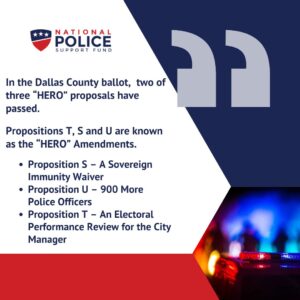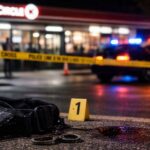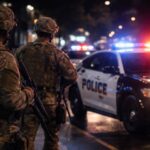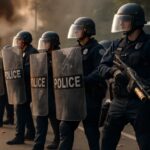As part of the general election held on November 5th, voters in Dallas also had the opportunity to decide on 18 propositions that would alter the City’s Charter. Among the 14 that passed are two of three “HERO” proposals that will have a deep, lasting impact on the way city officials, law enforcement officers included, operate. However, the jury is still out on whether this will be a good thing or a poisoned gift.
These two proposals are known as Amendments S and U.
About the HERO Amendments
In the Dallas County ballot, Propositions T, S, and U are known as the “HERO” Amendments.
Most of the proposals included in this year’s ballot were originally pushed by the City Council, which voted in their favor but must now seek the public’s approval before setting them into motion.
The HERO amendments, on the other hand, were included following a grassroots movement – the bipartisan Dallas HERO alliance – that collected almost 170,000 signatures in their support. The initiatives appear to deal with vastly different issues, but in one way or another, they are all meant to increase accountability for City officials and to increase funding for safety and security.
The Dallas HERO alliance was widely supported by local hotelier mogul Mont Bennett. Although a registered Republican, he managed to mobilize voters from all sides of the political spectrum as part of the HERO campaign.
What did the People of Dallas Vote On?
Each one of the three “HERO” proposals called for radical changes to the city’s charter, and therefore, they were all controversial in their own way.
Proposition S – A Sovereign Immunity Waiver
Perhaps the biggest game changer in the package, Proposition S grants “any resident of Dallas” the ability to sue the City Council or its officials if they are believed to be violating the city charter or the state law. It also removed the City Council’s governmental immunity.

The goal behind this amendment is to empower regular citizens to hold the City accountable for the results of its policies. However, some politicians have warned that it may bring an onslaught of frivolous lawsuits against the city and divert resources away from everyday operations. Nonetheless, Proposition S was supported by 55% of voters, and it seems set to become the local standard.
Proposition U – 900 More Police Officers
This amendment earmarks 50% of the City’s new revenue every year and allocates it to the Dallas Police and Fire pension. However, it also mandates the city to keep a police force of at least 4,000 officers and to enact an immediate increase in starting pay.
The goal is obvious: stronger and better-paid police should make it easier to lower Dallas’ crime rates and increase the sense of safety among locals. And yet, the Dallas Police Association voiced some minor concerns: to meet the 4,000-strong quota, Dallas would need to recruit and train at least 900 officers immediately. Currently, this is a tall order that would require a six-figure investment for the city, which the Proposition’s extra funds would not cover.
Proposition U passed with the support of just 51% of voters. And yet, this is enough to declare it as an unequivocal winner.
Proposition T – An Electoral Performance Review for the City Manager
The only HERO proposal to fail, Proposition T called for an “annual satisfaction survey of at least 1,400 residents.” Then, the results of this survey would be used to determine whether the City Manager’s employment would be renewed and to approve possible salary increases.
However, 55% of Dallas residents voted against Proposition T, so it is now certain that it will not become a reality.
What are Dallas Residents Trying to Say?
Some of the HERO proposals have been criticized for going “too far” and potentially hindering the City’s ability to provide essential services.
And yet, one thing is clear – over half of Dallas’ residents feel the City Council should be held accountable and spend more on law enforcement. Is a court of law the ideal place for this? Possibly. But no matter the possible dangers, it is imperative for the City’s leaders to acknowledge and act on the concerns of the people they serve.








